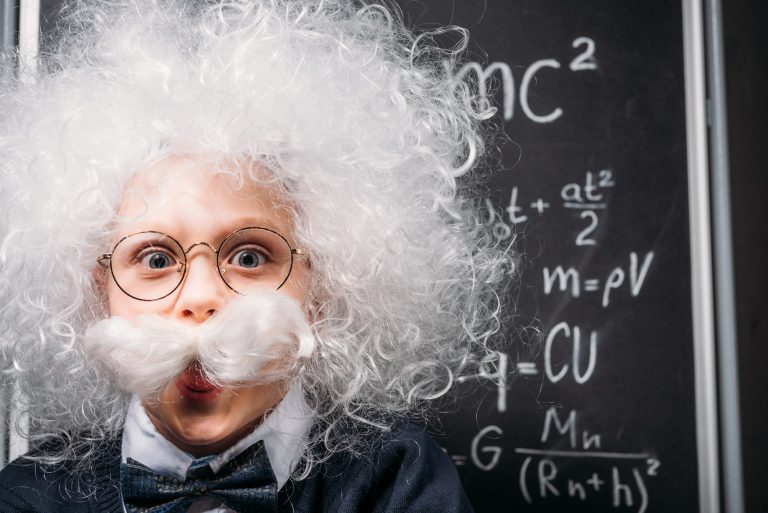
The International Baccalaureate program offers a variety of courses to students, and one of the most challenging of these is the Physics Internal Assessment. The IA provides an opportunity for students to demonstrate their understanding and apply their skills in independent research and analysis, while also giving them a chance to develop personal projects that can boost their academic credentials.
At its core, the Physics IA is a research paper that focuses on a specific topic in the discipline. It involves researching, collecting data, drawing conclusions, and refining the findings in order to complete the project. While the internal assessment can be daunting for students, it’s one of the best ways to prove their understanding of the material and demonstrate their ability to work independently.
The IA requires students to explore a range of topics, from traditional physics topics such as electricity and magnetism to more modern topics like quantum mechanics or robotics. No matter what is chosen, students must be sure to pick a topic that is appropriate for their level of understanding, as well as interesting enough to generate sufficient enthusiasm to complete the project. Once a suitable topic is chosen, students must then develop a research question, collect data, and analyse the results in order to draw meaningful conclusions.
At the same time, it’s important to remember that the IB Physics IA is also a practical exercise that encourages critical thinking and problem-solving skills. Not only will it test a student’s understanding of the physics concepts, but it will also require them to think outside the box and come up with creative solutions to complex problems.
Overall, the IB Physics IA provides an invaluable opportunity for students to demonstrate their knowledge, skills, and commitment to their education. It allows them to explore a wide range of topics and develop their own unique research projects, all while advancing their academic credentials and preparing them for further studies in physics.
Recommended Topics for a Physics IB IA
When it comes to deciding on a topic for your Physics IB IA, it is important to choose something that you find interesting and that you have enough data to gather. There are a variety of topics to consider within the fields of classical mechanics, electromagnetism, thermodynamics and fluid dynamics. Here are some topic suggestions to consider:
- Classical Mechanics: Pendulum motion, circular motion, energy conservation, elastic collisions, centripetal force, complex pendulum.
- Electromagnetism: Electric and magnetic fields, Ohm’s law, inductance, capacitance, Faraday’s law, electromagnetic radiation.
- Thermodynamics: Heat transfer, thermal expansion, gas laws, introduction to thermodynamics, ideal gas laws, heat engines.
- Fluid Dynamics: Bernoulli’s equation, Pascal’s principle, fluid flow, fluid pressure, viscosity.
These are just some ideas to get you started on your Physics IB IA research. Depending on the complexity of your chosen topic, you may need to break it down into several different subtopics in order to properly explore it. With the right research, you can eventually come up with an interesting and informative conclusion.
Developing An Outline & Investigating Your Topic
Developing an outline and conducting research for your Physics IB IA topic is an important part of the project. When you have a clear plan and know where to look for relevant data, you can make sure your IA paper is accurate and well-researched. Here are some steps that you should take when you start work on your IA topic:
- Choose a topic that piques your interest and find out more about it. Look up some related articles and decide which topics are feasible and interesting to pursue.
- Create a project outline. A good outline will help organize your thoughts and keep you focused. Your outline can include an introduction, body paragraphs with research findings, and a conclusion.
- Gather data from reliable sources. Your sources should be credible and relevant to your research topic. Sources like scientific journals and books are preferred over magazines and websites.
- Analyze the data and look for patterns or trends in the data. This helps you to form conclusions and ideas about your topic.
With a clear plan of action and a wide range of sources to explore, you can begin your Physics IB IA with confidence. Keep in mind that this project can take up to several weeks to complete, so it’s important to stay organized and make sure that each step of your research plan is taken care of. Good luck!
Useful Resources for Physics IB IA Research
Whether you’re researching for your Physics IA or just want to brush up on physics concepts, there are plenty of helpful resources available that can supplement your current research methods. Here are some recommended tools and websites that can help make your research journey easier:
- Textbooks and Journals – A great place to start your research is with textbooks and scholarly journals. Textbooks will provide the fundamentals of any physics subject, while journals are particularly useful if you’re tackling a more advanced topic.
- Online Resources – There are plenty of online resources available if you prefer to do your research digitally. Websites like Khan Academy, Quora and Yahoo!Answers offer plenty of answers to common questions and information about specific topics.
- Libraries – Your local library is another great resource for finding information on physics-related topics. Libraries often have dedicated sections for books and journals and may provide access to digital resources like ebooks and reference reports.
- Experimental Data and Simulations – Doing experiments and simulations can provide valuable data to support your IA. Some websites offer free experimental data that can be used as reference material.
These resources can be invaluable when it comes to researching your Physics IA topic. It’s important to use a variety of sources when conducting research, so make sure to take advantage of the different sources available to you.
Crafting a Hypothesis
A hypothesis is an educated guess about how two variables are related. It allows you to naturally explore the world around you and make observations about it. For example, you may hypothesize that the temperature has an effect on how quickly a substance evaporates. As a scientist, it’s important to back up your hypothesis with facts and evidence.
There are a few steps to consider when crafting a good hypothesis. First, you need to have a research question. This will help you identify the problem or situation you are trying to learn more about, and it should be specific enough that it can be tested. Once you have your research question, you can create a hypothesis statement, which is an educated guess on the outcome of your experiment or research.
When creating your hypothesis statement, it should be stated in a way that it is testable and measurable. For example, “The higher the temperature, the faster the substance will evaporate.” In this sentence, the variables of interest are “temperature” and “rate of evaporation.” You should also ensure that the statement is based on factual evidence; for example, citing a scientific paper or experiment that supports your hypothesis.
Once you craft a hypothesis statement, it’s important to test it and collect data to see if you’re correct. If done correctly, experiments can help provide evidence to support or refute your hypothesis. After collecting the data, analyze it and draw conclusions based on your findings. This will help you gain insight into your topic and answer your research question.
Gathering Data & Analysing Results
When gathering data for your Physics IB IA, it is important to take the time and make sure that you are collecting enough relevant information. You want to be able to look back and analyze your results in an informed way.
There are a few key tips to remember when gathering data:
- Make sure you are gathering appropriate data for your experiment. Think about how you can measure the variables.
- Write down your observations accurately and meticulously with as much detail as possible.
- Use charts and tables to help organize the information you have collected.
Once you have gathered all the data, it is then time to analyze it. This is where all your hard work comes together as you try to draw meaningful conclusions from the data. What patterns can you observe? How do the results compare to what you originally hypothesized? Are there any unexpected results?
Here are some helpful tips to consider when analyzing data:
- Identify any anomalies in your data and consider whether or not they should be included in your analysis.
- Look for relationships and correlations between different sets of data.
- Compare the results with other experiments to see if there are any discrepancies.
- Make sure that your conclusions are supported by the evidence.
Careful data collection and analysis are essential for creating a successful Physics IB IA project. By taking the time to thoroughly collect and analyze your data, you will be able to make more informed conclusions and present a clear and concise report.
Writing The Report
Writing the report is an essential step in the Physics IB IA process and it can be overwhelming to know where to start. However, with the right planning and strategy, you can craft an effective report that accurately demonstrates your knowledge and understanding of the topic.
When it comes to writing a report, it’s important to have a plan. Start by developing an outline that covers all the relevant points you want to cover in your article. This will act as a framework when you’re writing your report, ensuring that all the necessary elements are included. Additionally, try breaking up longer paragraphs into shorter ones to make it easier to read.
Another important aspect of writing a report is formatting. To make your report look professional, use headings, sub-headings and bullet pointed lists to break up the text and make it more visually appealing. Furthermore, make sure to use language that is clear and concise, so that the readers can easily understand the information provided.
Lastly, organization is key for a successful report. Group together similar topics and make sure to use logical transitions between sections. Additionally, include an introduction and a conclusion to provide structure and make your article cohesive.
By following the tips laid out here, you can create a powerful report that accurately covers all the key points related to your topic. Good luck!
Want an IA that stands out? Buy Internal Assessment help from our expert team. Let our IB IA writers handle the hard work while you shine in your academic pursuits
Buy IB IA with Full Confidentiality!
Grab your IB IA with full privacy guaranteed.
Our no-leak policy keeps your details 100% secure.

Final Reflection & Conclusion
Writing a Physics IB IA can be a very rewarding experience. Not only will you have the opportunity to delve deeper into a particular field of physics, but you’ll also get to learn about the research process and the components of an effective report. Throughout this guide, we’ve discussed the ins-and-outs of the Physics IB IA process, from choosing a topic and developing an outline, to assembling data and writing a report.
Now that you’ve finished the guide, it’s time to reflect on everything you learned. The first step was to select a suitable topic, which may require you to think outside the box or even explore different branches of physics. After brainstorming out an outline, the next step was to use the right resources to systematically investigate your chosen topic. You should also craft a clear hypothesis and collect data through laboratory experiments or computer simulations.
Once you’ve gathered enough evidence to support (or reject) your hypothesis, the time has come to write up your findings. It’s important to always keep your readers in mind when structuring and formatting reports, as well as to use clear language throughout. As always, proof-reading your work is essential to ensure accuracy and completeness.
Finally, we hope this guide has provided you with the necessary guidance and tips needed to complete a successful Physics IB IA. Always remember to stay focused, take notes and don’t forget to have fun. Good luck!
Frequently Asked Questions
- Q: What is Physics IB IA?
A: Physics IB IA stands for International Baccalaureate Internal Assessment. It is an assessment that students who are taking Physics subjects in the International Baccalaureate program, must complete in order to fulfill the requirements of their course and pass the class. - Q: What topics should I consider when selecting a topic for my Physics IB IA?
A: Potential topics for a Physics IB IA can be found within the different topic areas including mechanics, kinematics, energy, oscillations, wave motion, etc. Your tutor or professor may help you decide on a topic depending on the current course materials. - Q: How can research methods be used when investigating my chosen topic?
A: Research methods such as experimenting, simulation, surveys, interviews, observation, literature review, and case meetings can all be used when investigating your chosen topic. - Q: What type of resources are available to help me with my Physics IB IA project?
A: Many online resources can be found to assist you with your Physics IB IA project. These include websites such as Khan Academy, Massive Online Open Courses (MOOCs), textbooks, scientific journals and research papers. - Q: How do I build an effective hypothesis for my Physics IB IA project?
A: Before forming a hypothesis, it is important to carefully research your chosen topic and understand what is already known about it. Once you have done this, you can develop a hypothesis that can be tested with accuracy and backed up with factual evidence. - Q: What data gathering techniques can be used to gain useful insights?
A: Data gathering techniques such as interviews, surveys and experiments can be used to collect data, while charting, graphical representation, mathematical analysis and correlation tests can be used to process the data and gain useful insights. - Q: What tips can I use when writing a report?
A: Tips for writing a report include using clear and concise language, being organized, formatting the text properly, and breaking the report into sections such as introduction, methodology, results, discussion, conclusion, and references. - Q: What should I include in my final reflection & conclusion?
A: The final reflection and conclusion of your Physics IB IA project should summarize the key points discussed throughout the investigation in order to provide your readers with a recap. Additionally, adding a thoughtful and inspiring final message can be beneficial for the reader’s understanding. - Q: Will I need to cite any sources used?
A: Yes, it is important to cite any sources used in your Physics IB IA project in order to give credit to the original author. Citing sources also adds credibility and validity to the overall report. - Q: Are there any other tips for completing my Physics IB IA project?
A: Other tips for completing a Physics IB IA project include starting early, planning out a timeline and managing your workload, setting attainable goals, working with a study group, and seeking guidance from your teacher or supervisor.
- Last edit 17 JUL 2024

Nick Radlinsky
Nick Radlinsky is a passionate educator, marketer, and management expert with over 15 years of experience in the education sector. After graduating from business school in 2016, Nick embarked on a journey to earn his PhD, fueled by his dedication to making education better for students everywhere. His extensive experience, beginning in 2008, has made him a trusted authority in the field.
Nick's groundbreaking article, published in Routledge's "Entrepreneurship in Central and Eastern Europe: Development through Internationalization," showcases his keen insights and commitment to improving the educational landscape. Guided by his motto, "Make education better," Nick's mission is to simplify students' lives and promote efficiency in learning. His innovative ideas and leadership have helped transform countless educational experiences, setting him apart as a true pioneer in his field.




